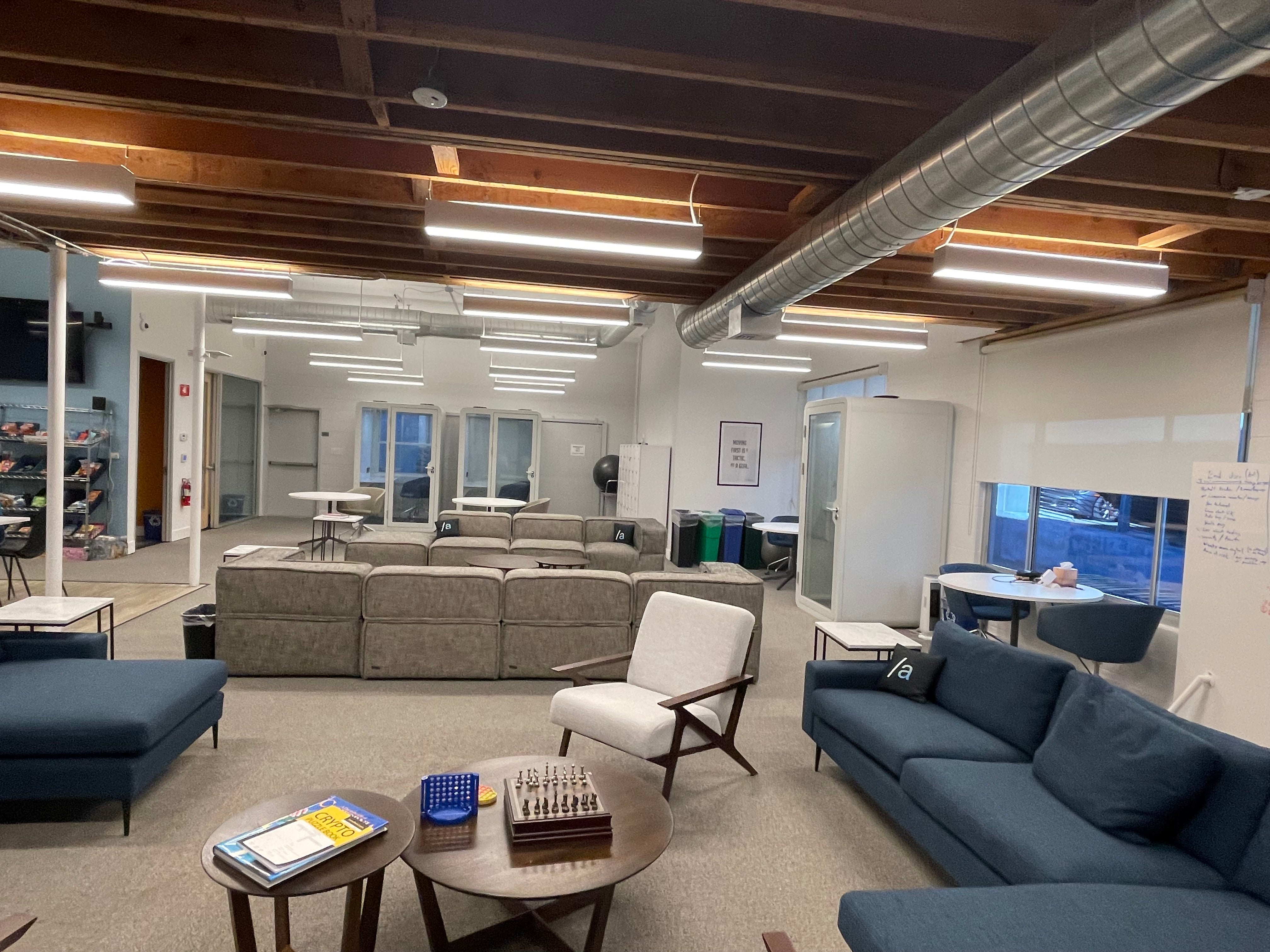Each of us has a unique preference regarding the nature of our work environment. Some of us need quiet to work at our best. Some of us need a little bit of sound and energy to find flow. Many of us like a mix of different environments, or office acoustics, throughout the day. What the ‘ideal’ work environment looks and feels like is a subjective matter.
So how do we reconcile these varying preferences by the design of the office?
Variety is the key.
The office must be fitted with a variety of meeting and working spaces that give employees the freedom to choose how and where they work.
Variety is precisely where the open office fails.
How the open office fails to provide the optimal working environments
No space dedicated to small meetings
The traditional open office doesn’t have adequate meeting spaces, pods, or booths sized for small groups. This means the conference room represents the only option for a place to meet. Small teams must awkwardly flood a space far too large for their group. The result? A struggle to create that intimate atmosphere needed to enable the alignment that marks a successful meeting.
No place to call our ‘own’
For introverts and generally reserved people, this problem is emotionally resonant. There is no space in the open office to isolate ourselves from others and work alone in total concentration — such as an isolation booth. Without a personal workspace, employees feel they have insufficient ownership and authority. This creates anxiety, nervousness, and subtle frustration. To relax into work a person needs to feel at home in their environment.
No privacy
Important calls, deep work, and private conversations all deserve the quiet and dignity a privacy pod or space offers. Not surprisingly, 95% of employees report that privacy is important. Incidentally, a lack of privacy is the open office’s foremost characteristic.
When each keystroke and phone notification can be heard from across the room, workers feel monitored and stressed. When privacy can’t be found anywhere in the office — such as within an acoustic privacy booth — the staff also begins to feel like they have no agency. It’s valuable to note that having agency is a vital factor in work satisfaction.
Privacy is critical for phone calls. Without the right office acoustics to reduce office noise and enclose the call, making important calls at work is an uncomfortable if not impossible task. The same is true for the majority of standard work functions: discussing confidential information with a teammate, closing a deal with a prospect, or sharing personal matters with a close colleague. Private work deserves a private space. Unfortunately, only 40% of the workforce report having the right conditions for private work.
Distraction
Distraction in the open office takes a multitude of forms. Consider any kind of stimuli — light, sound, or movement. Because the open office is without soundproofing partitions or pods to compartmentalize and block these stimuli, occupants of the space are subject to all of the activity around them at once. This includes chatter among coworkers, client calls, and any movement in the distance. The sensory overload that results is devastating to focus. According to a study from Ipsos, we lose an average of 90 minutes of productivity a day to noise and other factors that interfere with our work.
Phone calls are particularly problematic when the office space has no phone pods. Private or confidential information is at risk of being exposed. At the same time, the noise created by the call hinders the concentration of all coworkers within earshot. Decreased concentration results in a productivity decrease of up to 66%. Here, distraction and productivity directly relate.
Lack of options for where to work
Long hours at the computer can be emotionally and physically draining. Sometimes we just need a change of environment to reset and approach our work with fresh energy. Unfortunately, the open office doesn’t provide a variety of work setting options. Without options, employees don’t have the necessary freedom to change environments as fitting to their workflow. Productivity suffers as a result.
Poor morale
Distraction, sensory overload, and lack of privacy and options for where to work all degrade work morale. Healthy socialization in the office also suffers equally. In fact, contrary to what one might think, open, unbounded offices reduce face to face interaction with a magnitude of about 70%.


Share:
Office Soundproofing - Why It’s Important and How to Do It